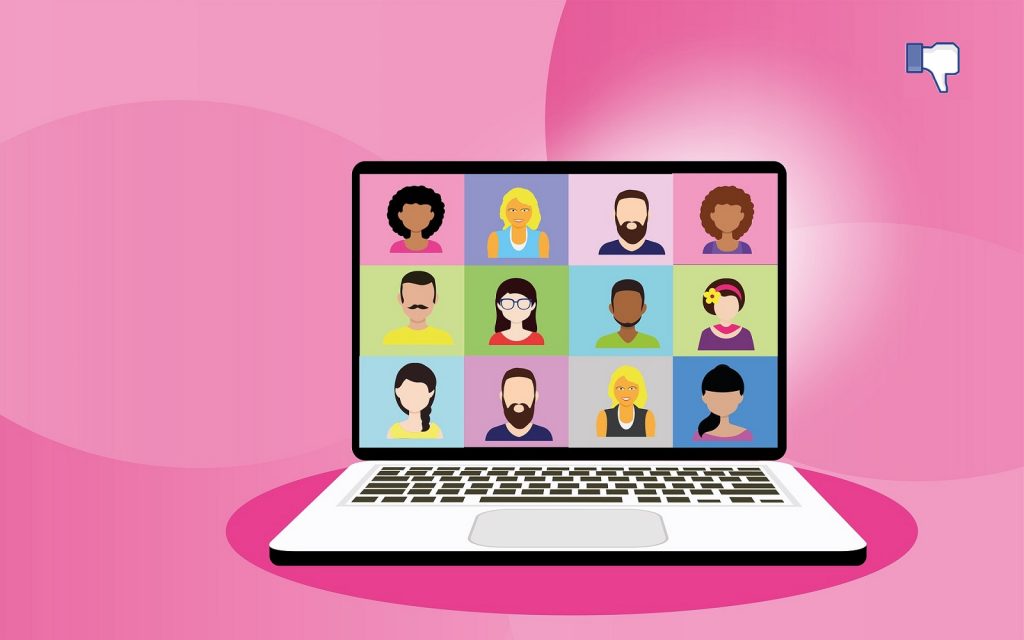This won’t come as much of a surprise to those who’ve attended virtual meetings in the past few years: a new study published in MIT’s Imaging Neuroscience journal has shown that our brains don’t respond to other people in virtual meetings the same way they do in live, in-person interactions.
The research used advanced imaging tools to monitor the brain activity of people talking in-person and over Zoom, and was able to clearly show different levels of brain activity between the two.
Senior author of the study, Joy Hirsch, professor of psychiatry, comparative medicine and neuroscience at Yale University, said in a Yale news release that “In this study we find that the social systems of the human brain are more active during real live in-person encounters than on Zoom. Zoom appears to be an impoverished social communication system relative to in-person conditions.”
In-person vs. virtual meetings
The big difference in how this research was conducted was that it monitored pairs of people in conversation, while previous studies only involved single individuals. The study focused on neural system responses in the two different types of conversation, which were markedly higher in in-person chats. The researchers attribute the increase in the neural responses they observed during in-person interactions to “increased gaze time” and wider pupils.
Brain wave activity was likewise higher during in-person interactions, which the researchers said was “characteristic of enhanced face-processing ability”.
Better understanding
Even more interesting, the researchers also noted “more co-ordinated neural activity” between the brains of people in live conversation. This is a strong indication that they were more in sync with one another, something that allowed the brain to better understand each other’s social signals like body language, tone of voice, and facial expressions.
Comparatively, people talking to each other on Zoom showed far fewer neural system responses (or even none at all), leading the researchers to conclude that digital representations of faces don’t engage the brain’s social circuits nearly as much as the real thing.
The brain knows Zoom is not real
As Hirsch puts it, “Online representations of faces, at least with current technology, do not have the same ‘privileged access’ to social neural circuitry in the brain that is typical of the real thing.”
So what does all of this mean? Basically, humans are incredibly social creatures for whom virtual conversations are poor imitations of the real thing. While you might get the same verbal information from a Zoom call in purely black and white terms, making them at least somewhat effective for communicating work-related things, virtual meetings don’t tick all of the boxes needed for us to feel like we’ve had meaningful human interactions.
Less connected
Which goes a long way to explaining how virtual meetings over COVID didn’t leave anyone feeling particularly socially satisfied, despite the many, many (MANY) virtual meetings we all participated in. If anything, the sheer number of virtual meetings we had in 2020, 2021, and 2022 arguably left us feeling, quite ironically, less connected than ever.
And now you know why.
Business implications?
Well, for starters, it strongly implies that communications via virtual meetings may not be as effective as in-person meetings, as they can’t quite reproduce the social and body language cues that lead to effective communication. This can, in turn, impair decision-making.
It also has implications for employee health, and should tell businesses that conduct a lot of virtual meetings that their employees might be feeling socially isolated and disconnected, which can impact on their state of mind and productivity and which may need to be addressed at some point.
Virtual Representations Are Not Enough
So, you were not alone in your feelings of dissatisfaction with virtual meetings, and it’s because humans are social creatures for whom virtual representations of other people are not enough to satisfy our social needs.
Sadly, this also means that until technology advances sufficiently, virtual meetings will continue to suck, at least from a “get your social fix” perspective.
Image by Alexandra_Koch from Pixabay




